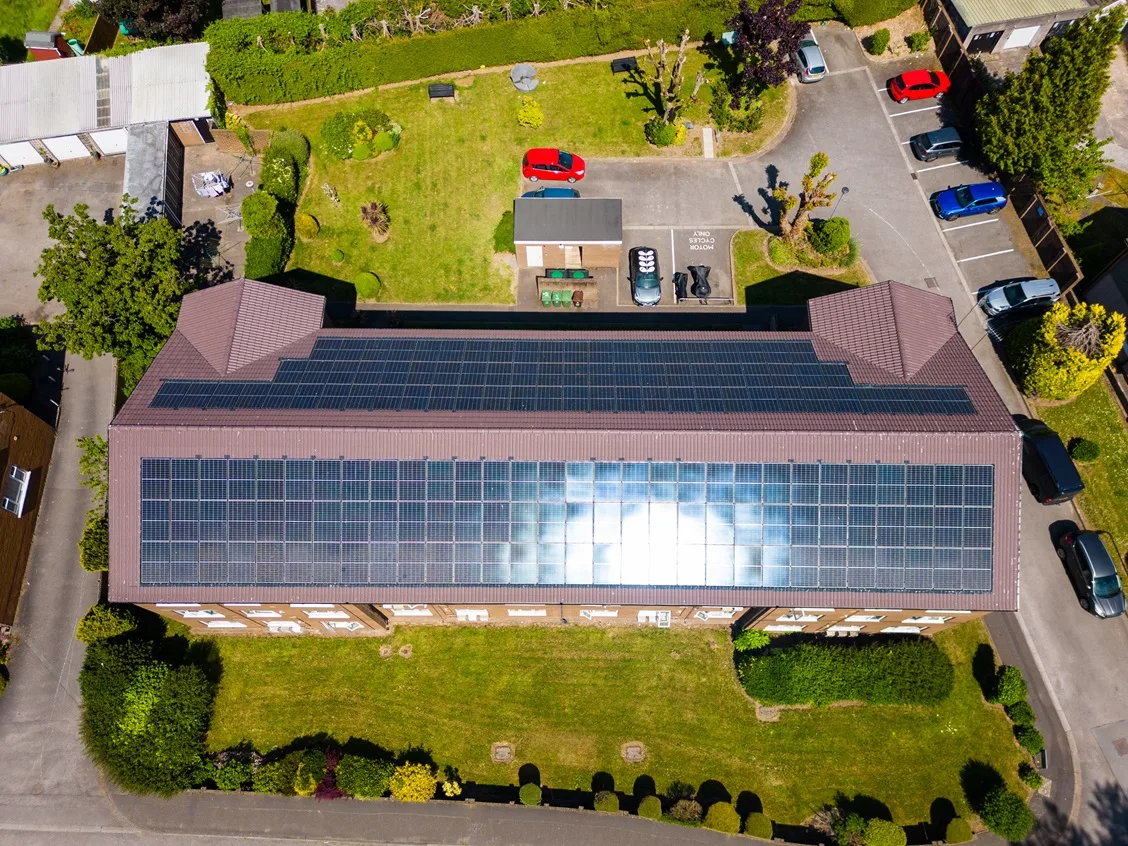Simplified solar funding for social housing flats with Allume’s SolShare – Just provide your address list
ECO4 is the UK’s latest Energy Company Obligation scheme, launched in 2022 with a £4 billion budget which runs until 2026. It targets fuel poverty and carbon emissions by funding energy efficiency improvements in low-income households. By focusing on the least energy-efficient homes, ECO4 aims to cut energy bills, enhance living conditions, helping you achieve your net-zero goals and reducing energy costs for you tenants.
Ofgem has certified SolShare as an innovation measure, unlocking 45% more funding for your apartment buildings.
Overview: The Optimised Retrofit Programme (ORP) is a Welsh Government initiative focused on enhancing the energy efficiency of existing social housing across Wales. The program aims to reduce carbon emissions and make homes warmer and more affordable to heat, contributing to Wales’ goal of becoming a net-zero carbon nation by 2050.
Eligibility:
- Who can apply? The ORP is available to all registered social landlords in Wales, including housing associations and local councils.
- Eligible Projects: Projects that demonstrate innovative approaches to retrofitting homes to achieve significant energy efficiency improvements.
How to Apply:
- Application Process: Interested social landlords must submit an application that includes a comprehensive retrofit plan, detailing the specific measures to be implemented, the costs involved, and the expected benefits in terms of energy savings and carbon reduction.
- Evaluation: Proposals are evaluated based on innovation, cost-effectiveness, scalability, and the potential for replicability across other housing stock.
Accessing Funding: Approved projects receive funding to cover part or all of the retrofit costs. The Welsh Government may also provide additional support through consultancy and technical advice to ensure successful project delivery.
Overview: The London Legacy Development Corporation (LLDC) is a body established to manage the development of the Queen Elizabeth Olympic Park and surrounding areas. While not a traditional funding stream, the LLDC offers various grants and investment opportunities aimed at supporting housing development, including affordable and social housing projects within the designated area.
Eligibility:
- Who can apply? Developers, housing associations, and local authorities working on projects within the LLDC boundary are eligible to apply for support.
- Eligible Projects: Projects that align with the LLDC’s goals of sustainable development, community benefit, and affordable housing provision.
How to Apply:
- Application Process: Applications typically involve submitting a detailed development proposal that includes plans for housing, community infrastructure, and sustainability measures. Proposals are evaluated for their alignment with the LLDC’s strategic objectives.
- Assessment Criteria: Key factors include the project’s potential impact on the local community, sustainability credentials, and contribution to affordable housing stock.
Accessing Funding: Funding or investment is provided based on project needs, with options for grants, loans, or joint ventures depending on the scale and nature of the development.
Overview: The Social Housing Net Zero Heat Fund (SHNZHF) provides grant funding to social landlords in their transition to net zero. The SHNZHF launched in August 2020 and is making at least £200 million available to social landlords until 2026 for the retrofit of their existing housing stock which includes Insulation, Renewable heating and Solar PV.
Eligibility:
- Who can apply? Registered social landlords (RSLs) in Scotland, including housing associations and local councils, can apply for this fund.
- Eligible Projects: Projects that involve the installation of low or zero-carbon heating systems, such as heat pumps or district heating schemes, in social housing properties.
How to Apply:
- Application Process: Social housing providers need to submit detailed applications that include a technical assessment of the current heating systems, proposed solutions, costings, and expected carbon savings.
- Evaluation: Applications are assessed based on the potential carbon savings, the project’s feasibility, and the benefits to tenants, such as reduced energy bills and improved comfort.
Accessing Funding: Funding is typically awarded as a grant, covering a portion of the project costs. Projects may also receive additional technical support to ensure successful implementation.




